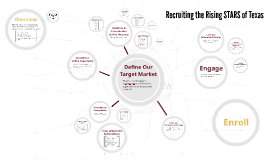Texas State University
Transcript: Accelerated Program Double Major Dual Enrollment of HS ESL Honor Program Independent Study Interships Teacher Certification Visiting/Exchange Student Program After TXST SAT Special Study Options Act Composite 18-23 60% English 18-23 57% Math 18-23 46% 20% Business/Marketing 8% Social Science 8% Visual & Performing Arts 7% Communications/Journalism 7% Parks & Recreation 6% English 6% Psychology Located between Austin and San Antonio,San Marcos is considered one of the state's most desirable places to live.With a population of about 48,000 ,San Marcos is Uniquely located on the edge of Texas Hill Country. 18,937 Total Applicants 13,976 Admitted 5,181 Enrolled May 1: Regular Application Due May 1: SAT/ACT Score Due May 1: SAT Score Report Due Apr 1: Financial Aid Most Popular Majors Texas State Brief Summary GPA Reading SAT :460-560 Math SAT:480-570 Writing SAT GOAL! Top Tenth 14% Top Quarter 49% Top Half 93% Bottom Half 7% Bottom Quarter 1% 20:1 Large public 4 year public university ,this college is located in a large town in a suburban setting.It offers bachelor's,master's and doctoral degrees. Bachelor in Nursing Geographical Information Deadlines 1% Law 3% Business 2% Medical 18% Other Promote health, prevent disease and help patients cope with illness. RN roles range from direct patient care and case management to establishing nursing practice standards, developing quality assurance procedures, directing complex nursing care systems, conducting clinical research and teaching in nursing programs, as well as practicing in many other invigorating settings. 74% Admitted Act Registered Nurse English - 4 years Math - 3-4 years (including algebra and geometry) Science - 2-4 years (including biology and chemistry; physics and computer science are recommended) Social Studies - 3-4 years Foreign Language - 2 years Cost Texas State University Class Rank Standardized Test Score Application Essay Rigor of Secondary school record Talent/Ability Very Important Class of 2019 Student to Faculty Ratio Registered Nurse Applicants Tuition and fees $9,516 Room and board $7,612 Books and supplies $810 Estimated personal expenses $1,700 Transportation expenses $1,310 Estimated Total $20,948

















